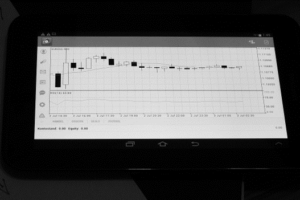
Recognition is a fundamental human need. When employees feel valued and appreciated, it can lead to higher job satisfaction, engagement, and performance. However, many organizations struggle to implement effective recognition programs that motivate staff and align with company values. This article explores how strategic employee appreciation initiatives can positively transform workplace culture and productivity.
Make It Personal
Generic “thanks for being great” messages from management ring hollow. Praise should be specific and tied to actual contributions. Recognize Jeff for staying late to fix that critical bug or Alicia for landing the big client account. Tailor rewards to what motivates each individual – public shoutouts, gift cards, extra time off. Personalized recognition reinforces that employees are seen, and their efforts matter.
Spotlight Core Values
Align awards and incentives with behaviors that exemplify your company values. Does collaboration foster innovation? Shine a light on effective team players. Is customer-centricity key? Celebrate employees who go above and beyond for clients. This focuses appreciation on modeling cultural priorities versus just achieving metrics. It also allows diverse contributions across roles to be recognized.
Empower Peer-to-Peer
The most powerful recognition often comes from peers, not just managers. Enable employees to call out coworkers for embodying values through peer-to-peer programs. This could be a quick chat, team kudos board, or formal reward nomination. Peer recognition builds camaraderie and helps prevent disengagement.
Share Successes Broadly
Don’t keep accomplishments under wraps. Broadcast individual and team wins company-wide through newsletters, town halls, and internal social platforms. This amplifies the impact of recognition and makes successes visible. It also allows employees to appreciate each other’s contributions.
Get Creative
Move beyond the typical bonus or gift card. Find unique and fun ways to show appreciation based on what resonates. Award experiences, additional learning opportunities, handwritten notes, or silly morale-boosting perks. Get input to ensure rewards actually delight. Think laughs, smiles, and warm fuzzies versus obligation. Surprise and delight boosts morale.
Make Managers Champions
Managers set the tone for workplace culture. Provide resources and training for leaders to recognize in ways that motivate their team members. Teach them to identify growth opportunities to praise. Ensure managers carve out time for 1:1 appreciation. When managers prioritize recognition, employees feel engaged and empowered. Leveraging best employee engagement software can provide tools to help managers champion recognition.
Celebrate Small Wins
Big milestones deserve acknowledgment, but so do small wins that build toward larger goals. Did someone volunteer for an undesirable task? Help a struggling co-worker? Identify and praise progress, not just end results. Recognizing incremental successes reinforces positive behaviors and keeps staff motivated in between major achievements.
Collect Feedback and Data
Measure the impact of recognition programs through pulse surveys and other feedback channels. Track engagement scores and performance metrics for recognized individuals. Adjust approaches based on insights. Relevant, meaningful recognition that makes employees feel valued requires listening and refining. Evaluate and evolve.
Establish a Budget
To create sustainable recognition programs, set a budget to invest in appreciating staff. Factor in costs for rewards, technology platforms, training, and promotion. Tie budgets to measurable business objectives – increased retention and higher productivity. Allocating proper funding shows this is a priority, not an afterthought. Demonstrate commitment.
Get Leadership Buy-In
Secure alignment and advocacy from executives, managers, and other stakeholders. Help them see the ROI of recognition backed by data. Have the leadership model value behaviors first. When higher-ups role model appreciation, it signals importance throughout the organization. Make them champions of the cause.
Build Habits of Recognition
Culture change requires forming new habits. Make recognition practices part of daily routines, workflows, and processes. Integrate reminders and cues to praise colleagues. At meetings, start by shouting out achievements. Incorporate peer recognition questions into reviews. Habitual behaviors drive lasting transformation.
Offer Variety and Choice
One size does not fit all in recognition programs. Provide various meaningful award types and incentives tailored to diverse motivations and styles. Some prefer public celebrations, others private thanks. Enable employees to redeem points for rewards of their choosing. Variety and choice drive engagement and satisfaction.
Conclusion
Strategic recognition initiatives that authentically appreciate employee contributions in line with company values can positively reframe the work experience. Employees feel seen, connected, and inspired when their efforts are acknowledged. The result is an engaged workforce, a collaborative culture, and an improved bottom line. The power of recognition transforms workplaces.







